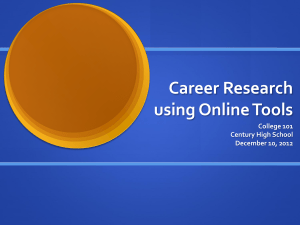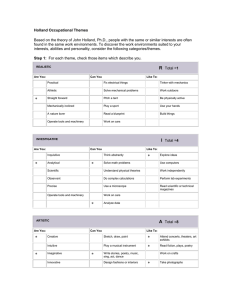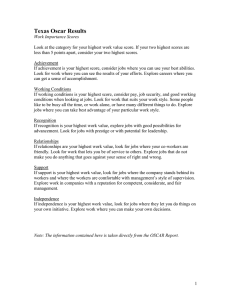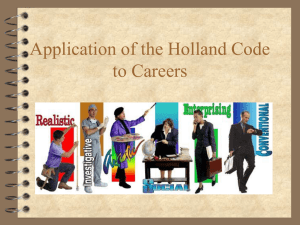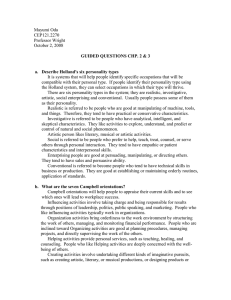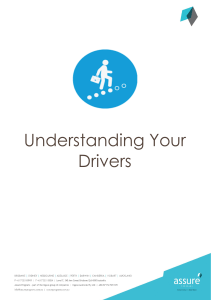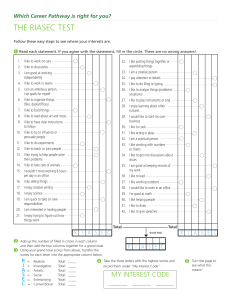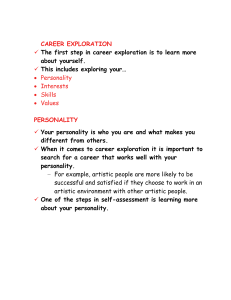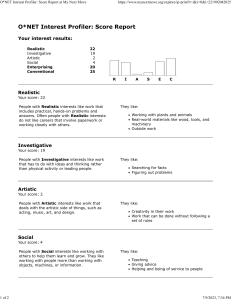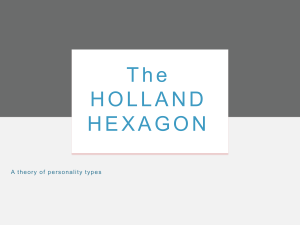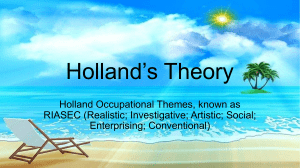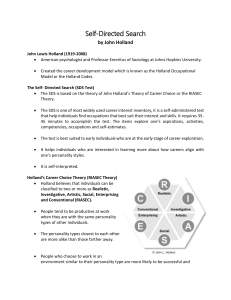Akina Shirayama CEP121 Chapter 1
advertisement
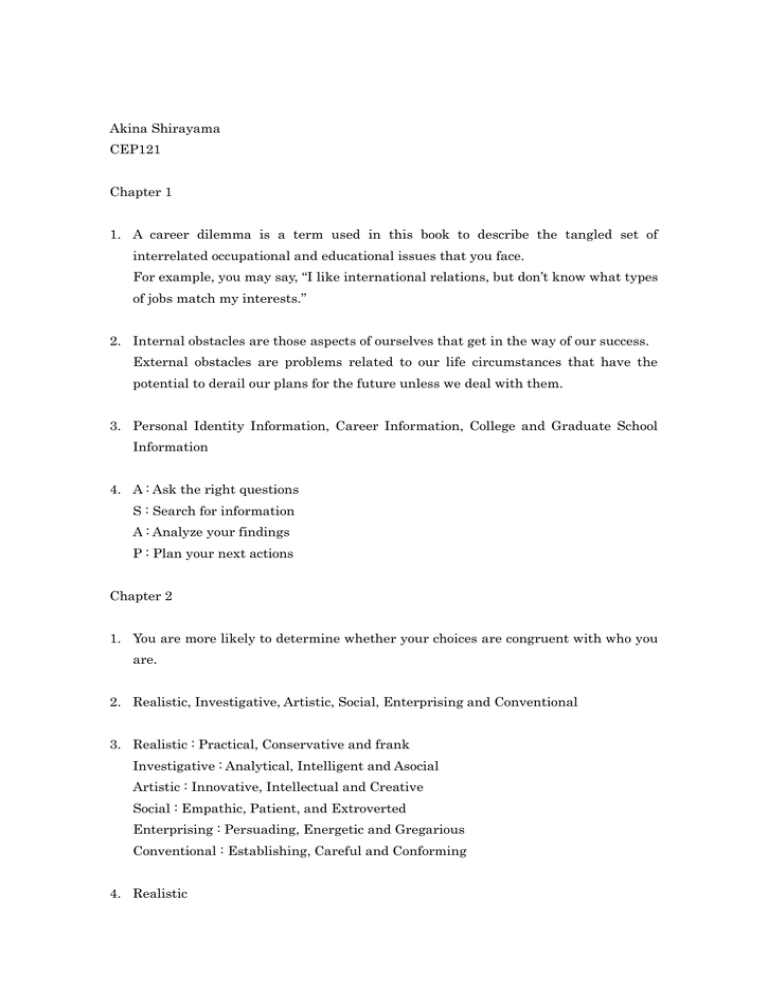
Akina Shirayama CEP121 Chapter 1 1. A career dilemma is a term used in this book to describe the tangled set of interrelated occupational and educational issues that you face. For example, you may say, “I like international relations, but don’t know what types of jobs match my interests.” 2. Internal obstacles are those aspects of ourselves that get in the way of our success. External obstacles are problems related to our life circumstances that have the potential to derail our plans for the future unless we deal with them. 3. Personal Identity Information, Career Information, College and Graduate School Information 4. A : Ask the right questions S : Search for information A : Analyze your findings P : Plan your next actions Chapter 2 1. You are more likely to determine whether your choices are congruent with who you are. 2. Realistic, Investigative, Artistic, Social, Enterprising and Conventional 3. Realistic : Practical, Conservative and frank Investigative : Analytical, Intelligent and Asocial Artistic : Innovative, Intellectual and Creative Social : Empathic, Patient, and Extroverted Enterprising : Persuading, Energetic and Gregarious Conventional : Establishing, Careful and Conforming 4. Realistic Chapter 3 1. By looking at your skills and interests 2. 3. Content skills provide the foundation that is needed to work with and acquire more specific skills in a variety of domains. Process skills contribute to more rapid acquisition of knowledge and skills across a variety of domains. 4. Portable skills, which are grouped into six “clusters” are not linked to one occupation; they are useful in many kinds of work. 5. Interpersonal skills, Communication skills, Computer skills, Problem-solving skills, Change-management skills and Self-management skills 6. Because of the fact that I don’t have a work permit, I cannot work as hard and progress in my life as I wanted and hope to.
